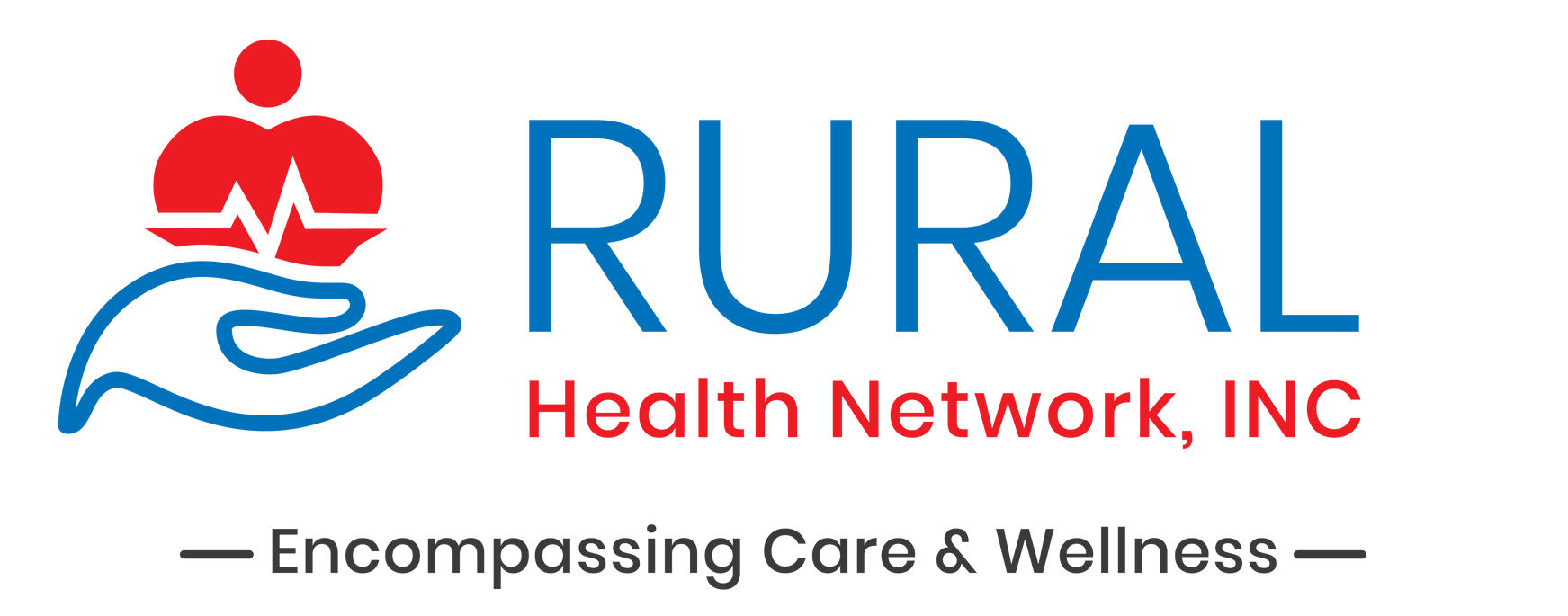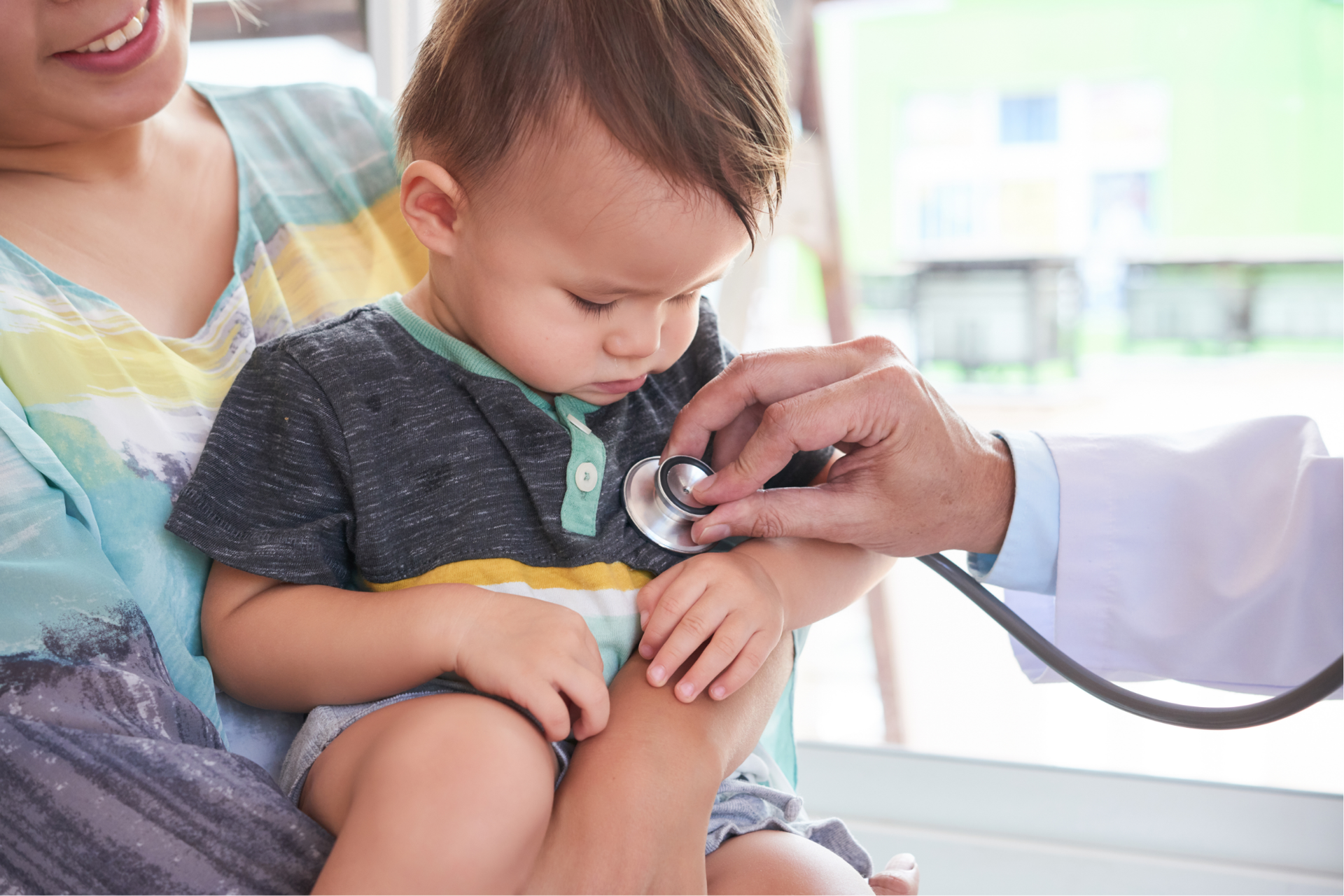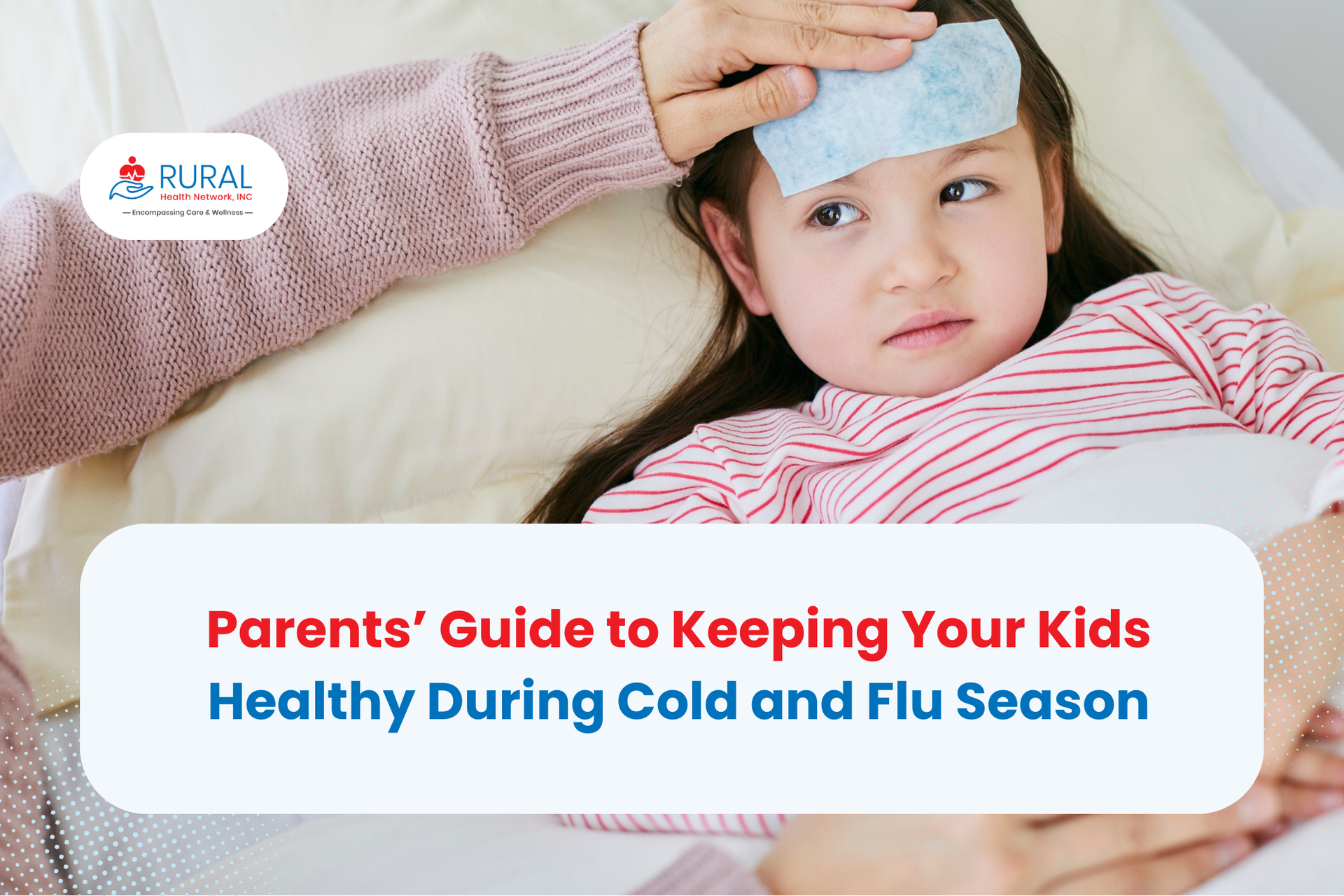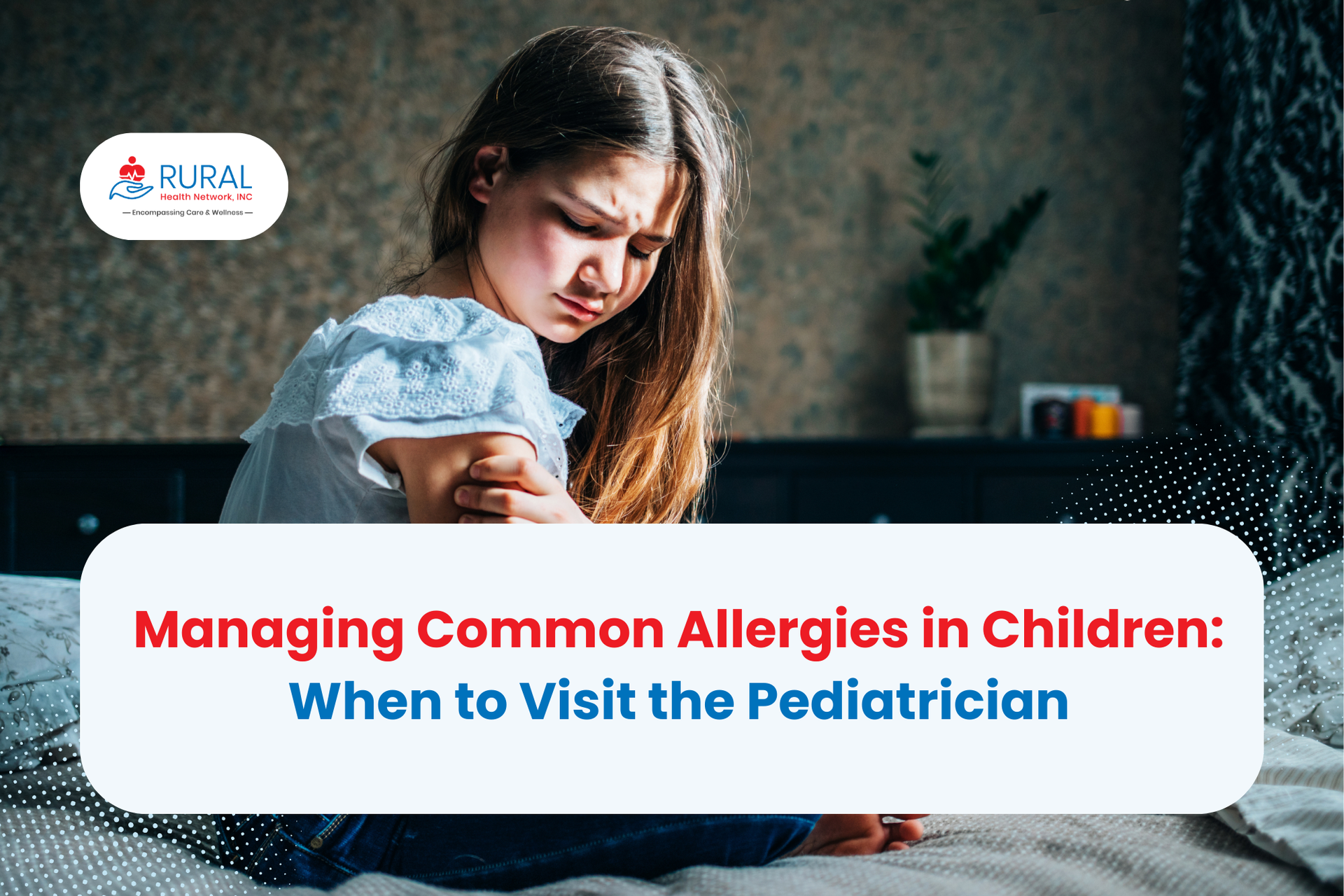Bringing your baby home for the first time comes with a blend of feelings—joy, wonder, and new worries. But don’t worry, it’s completely normal to feel unsure about what lies ahead and to have questions, especially when it comes to your baby’s health.
Your baby’s
first
pediatric appointment lays the foundation for a healthy start, ensuring your newborn is growing well and supported from the beginning. A strong support system between you, your child, and your
pediatric care team can make a significant difference.
At
Rural Health Network, we’re dedicated to putting your family at the heart of everything we do. To help you feel more confident and prepared, our team will guide you through every step of your baby’s first pediatric visit.
Protect Your Baby’s Health From Day One
Start Your Baby’s Care Journey Today
Your Baby’s First Pediatric Milestone
Your baby’s first pediatric visit is more than just a checkup—it’s the first step to helping your little one grow strong and healthy.
During your newborn’s first doctor visit, your pediatrician will measure your baby’s weight, length, and vital signs, making sure they’re developing as they should. They’ll also check for any early health concerns that may not be apparent yet.
This visit also starts your baby’s
medical record, which will become a valuable tool in efficiently tracking their medical history as they grow, especially when they encounter new health developments. Each visit builds on the last, helping your care team track your
child’s development and meet their needs as they grow.
Just as important, these early visits establish a strong relationship with your child’s pediatrician. Seeing the same doctor regularly creates an environment where your baby can feel safe and comfortable, giving you a trustworthy partner at every stage.
When to Schedule the First Pediatric Visit
The American Academy of Pediatrics (AAP) recommends scheduling your baby’s first
pediatric appointment three to five days after birth. If your baby came home early or had any complications, your doctor may ask to see them sooner.
This first newborn checkup allows your pediatrician to assess how your baby is adjusting at home and gives you early guidance on feeding, sleep, and daily care.
If you haven’t picked a provider yet,
Rural Health Network gladly welcomes new patients and can help you get started.
What Happens During the Checkup
At your baby’s first pediatric checkup, your pediatrician will take a complete look at your newborn’s health, making sure your little one is adjusting well at home.
Here’s what usually happens during a child health assessment:
- Vital signs check – Checking weight, length, head size, and temperature
- Complete physical exam – Looking at your baby’s eyes, ears, mouth, skin, heart, lungs, belly, hips, and reflexes
- Developmental screening – Seeing how your baby feeds, sleeps, and responds to sounds or movement
- Feeding and diaper habits – Expect questions about feeding and diapers
- Vaccine discussion – If any vaccinations are due, the doctor will explain the purpose and get your consent before administering them.
This first pediatrician exam process is all about learning, not “passing a test.” Your doctor is there to support you, offer guidance, and help you spot any early concerns.
How to Make the Most of Your Newborn’s First Doctor Visit
The first visit is a perfect opportunity for you to ask questions and build trust with your pediatrician.
Here are a few good baby health questions you can bring up:
- Is my baby feeding enough? How can I tell if they’re full or still hungry?
- What’s a normal sleep pattern at this age?
- How many wet or dirty diapers should I expect each day?
- What milestones should I watch for in the first month?
- Are there any safety tips for sleeping, bathing, or outings?
- What should I expect at the next pediatric care visit?
No question is too small. Asking questions helps you feel more confident in caring for your baby and fosters a connection with your healthcare team.
Easy Tips for a Fuss-Free First Pediatric Checkup
With a little planning, your baby’s first doctor visit can be more manageable, helping you feel more in control.
If you’re preparing for a pediatric visit, here are a few simple ways to keep things smooth:
- Arrive early to settle in and complete any necessary forms without rushing.
- Bring comfort items like a blanket, pacifier, or small toy to help soothe your baby if they get fussy.
- Feed your baby beforehand if needed, as a well-fed baby is usually a calmer baby.
- Dress your baby in easy layers to make undressing for the exam quicker and less disruptive.
- Keep a list of your concerns beforehand so you don’t forget to ask.
These first doctor’s visit tips can help make the visit feel less stressful for both you and your baby. The goal is to help you feel supported and confident every step of the way.
Rural Health Network: Growing Healthy Families Together
Your baby’s first pediatric wellness check is the first step to lifelong health. With the right care and guidance, you can help your baby grow strong, healthy, and supported from day one.
You don’t have to do it alone. At
Rural Health Network, we’re here to guide you through every question, every milestone, and every new experience. Whether you're feeling confident or still finding your footing, our team is ready when you are—and we can’t wait to welcome you and your baby with open arms.
Your Baby’s Health is Our Top Priority
Book an Appointment Now
Frequently Asked Questions
When should I schedule my newborn’s first pediatric appointment?
Most babies have their first pediatric appointment within three to five days after birth. Your provider may recommend that you come in sooner, depending on your baby’s health or the timing of your hospital discharge.
What should I bring to the first pediatric visit?
Bring your hospital records, any vaccination history, your insurance card, ID, and a few essential items for your baby. A prior list of questions or concerns can also help you stay focused during the visit.
What happens during the checkup?
The doctor will assess your baby’s growth, vital signs, reflexes, and overall health. You’ll also discuss feeding, sleep, and what to expect during the first few weeks.
How can my baby’s first pediatric visit go smoothly?
Arrive early, pack your bag ahead of time, and keep your baby comfortable with simple, familiar clothing and items. Planning helps reduce stress and keeps things running calmly.













